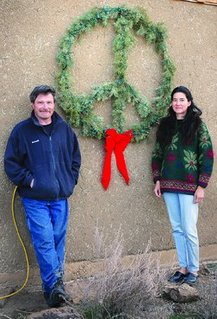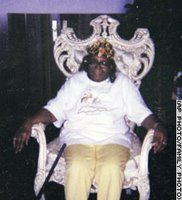
Colorado
Two Sunday's ago, November 19th, Lisa Jensen and husband Bill Trimarco decided to hang a wreath in the shape of a peace symbol on the side of their Pagosa Springs house, which is part of the Loma Linda Homeowners Association.
"I just wanted to put a message of peace out there," said Jensen, who said that she put the wreath up to honor the Biblical call for peace and goodwill toward men.
Shortly thereafter, they received a letter stating, "Loma Linda residents are offended by the Peace Sign displayed on the front of your house." Fellow residents were reportedly disturbed by the message of peace while our country is at war in Iraq and thought the wreath to be unpatriotic. The letter also stated that unless they remove the wreath, they would be charged $25/day in violation of a Housing law that states: no-signs/no-billboards without prior committee approval.
But when the five-person committee was asked to approve the decision for the requested removal and fine, all five opposed and were consequently fired by Homeowners Association President Bob Kearns.
"The peace sign has a lot of negativity associated with it," Kearns told the Durango Herald. "It's also an anti-Christ sign. That's how it started."






